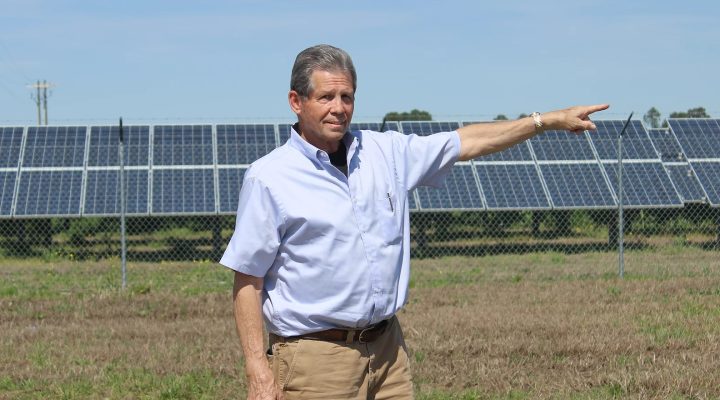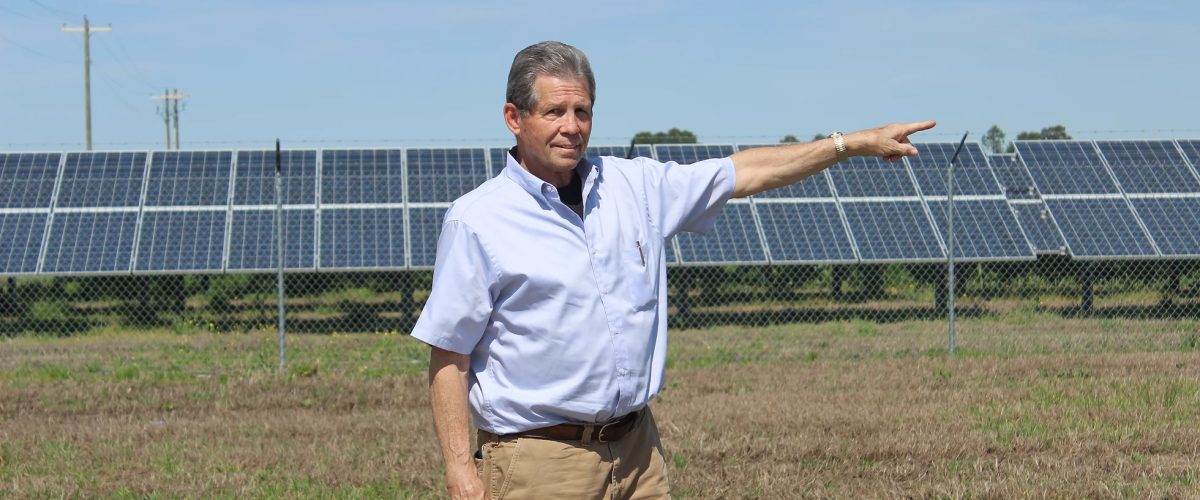Church property and facilities — often financial liabilities for small congregations — can provide vital revenue streams, participants at the Cooperative Baptist Fellowship’s 2022 General Assembly learned.
Two pastors, a preschool director and a community ministry leader helped CBF roll out a new resource — “Sacred Spaces Innovative Places: Reimagining Church Property and Facilities as Assets” — in Dallas June 30.
“We spent a year studying what to do with the facilities and property so many churches own that feel more like a burden than a blessing,” CBF congregational resource officer Rickey Letson said. “Facilities are costing more and more to maintain, and many churches have fewer members. So, they are dealing with increasing expenses and declining revenue.
“We’ve been asking, ‘Is there a way to see church facilities and property as a benefit rather than a burden?’”
The answer is an emphatic yes, he said, and panelists illustrated three of seven liabilities-to-assets stories from “Sacred Spaces Innovative Places.”
Space to spare
When Mark Buhlig became pastor of Englewood Baptist Church in Gladstone, Mo., seven and a half years ago, “it became clear there was some urgency,” he said. Like multitudes of congregations, Englewood struggled to maintain facilities many times larger than the small church needed.

Cathy McIntire, executive director of A Turning Point, makes a pitch for help in the renovation project at Englewood Baptist Church in Gladstone, Mo.
Eventually, Buhlig met Cathy McIntire, executive director of A Turning Point, a growing new community ministry housed in too-small facilities in a nearby town. As Englewood struggled financially because of the demands of its facilities, A Turning Point could not expand to meet the needs of the area because it had run out of room.
“We created a relationship that developed into a collaboration,” Buhlig said. Englewood’s campus included five buildings, while A Turning Point overflowed its lone building. “We couldn’t reach out to the homeless or expand educational opportunities and jobs training for adults,” McIntire noted. “And while we had ambition and passion, we didn’t have the energy level to do what they wanted to do,” Buhlig added.
So, Englewood invited A Turning Point into its campus and recently gave the entire property to the nonprofit. The church became the tenant in its facilities, and A Turning Point became the landlord with space to fulfill its calling.
“Their generosity has become a gift to our future,” McIntire said. “They have enabled ATP to evaluate and dream about the future, with space to do what is needed.”

The former sanctuary of Englewood Baptist Church in Gladstone, Mo., has been turned into a food pantry.
The switch also has been a blessing to Englewood, Buhlig stressed. For example, when McIntire told him A Turning Point wanted to move its food pantry into the church sanctuary, “I almost hugged her,” he said. “This gave us permission to rethink what worship might be like. We now meet in a circle. … When you’re sitting there on Sunday morning, you’re looking (across the circle) into the face of Christ.”
And now, members see a day center, clothes closet, food pantry and the base for other ministries in buildings they once struggled to maintain. “Seven years ago, I would’ve said, ‘There’s no way. But now our church has a new legacy and pride going forward,” Buhlig said.
A church learns to farm a new way
Opportunity nudged First Baptist Church of Mount Olive, N.C., toward innovation and a new understanding of “farming,” Pastor Dennis Atwood explained.
In 2003, a church member, a farmer with no children, died and “left everything he had to FBC for the benefit of the church,” Atwood said. “He did not spend money freely, so he accumulated a lot — stocks, cash, houses and land.”
The church sold some of the land and leased some tracts for agricultural use. But then it received a proposal to lease two of the tracts for solar farming.
“It’s important to change people’s thinking from scarcity to abundance. The Spirit will blow our minds if we pay attention to the opportunities.”
“It was no small task to convince the congregation to buy into solar farming,” Atwood acknowledged. “But we were patient, deliberate and transparent. We over-communicated everything, so no one felt we were trying to do anything under the table.”
Now, the church is the owner of 38- and 39-acre solar farms. “They’ll be out there at least 25 years,” he said. “Another 100 acres are being traditionally farmed. … It’s been a great revenue stream for the church.”
He added: “It’s important to change people’s thinking from scarcity to abundance. The Spirit will blow our minds if we pay attention to the opportunities.”
A generative preschool
In the last three years, since Danielle Simone became its director, the 50-year-old Preschool Development Center has become a vital source of funds for River Road Church, Baptist in Richmond, Va.

Children read together at the Preschool Development Center of River Road Church.
The transformation came about by more closely integrating the preschool with the church’s pastoral ministry, but also by listening to the children’s parents and providing services they want, Simone said.
“Effective communication is vital. And the pastoral staff and administration are very involved in planning,” she noted.
“A preschool can seem like a financial drain to a church. Sometimes, it is,” she conceded. “But we are concerned about our fiscal responsibility to the church. A business has to be run like a business. If you’re going to have a preschool, you have to know how much each seat in your school costs.”
In addition to the basic program, the preschool offers 15 “enrichments” — special programs, such as academic support, sports lessons and seasonal activities — throughout the year.
“We’re very a la carte with our offerings,” Simone said. “Parents love it, because they don’t need to shuttle children to other activities.”

Children put on a puppet show for other students at the Preschool Development Center of River Road Church.
The Preschool Development Center polls families about the enrichments every year, making adjustments according to what parents say their children want and need. “Knowing your community is very important, and it’s important to learn how to communicate with Millennials,” she stressed.
More and more River Road preschool families do not attend the church, she said. “But if you ask the children, they say they go to River Road Church. When you have a preschool, you have a second congregation. It opens new possibilities for ministry.”
And in River Road’s case, the preschool contributes to the church — providing 20% of its $2 million budget back to the church budget.
The “Sacred Spaces Innovative Places” resource offers other illustrations of how congregations are generating revenue through selling land, leasing parking lots and making facilities available to other congregations and ministries.
Letson and co-author Kelly Rhodes Adams are looking toward updating and expanding the resource in a second edition, he said.
Related articles:


